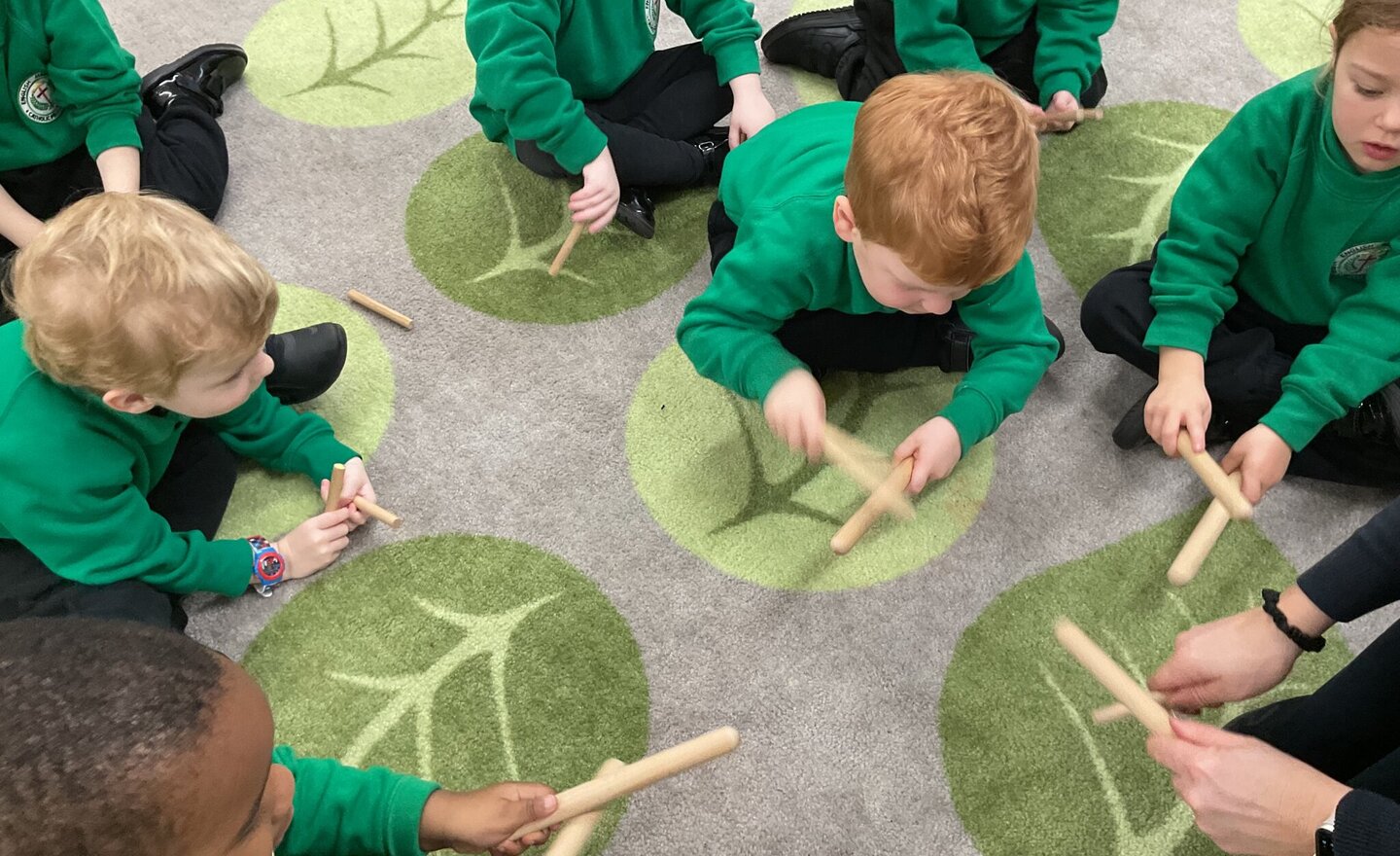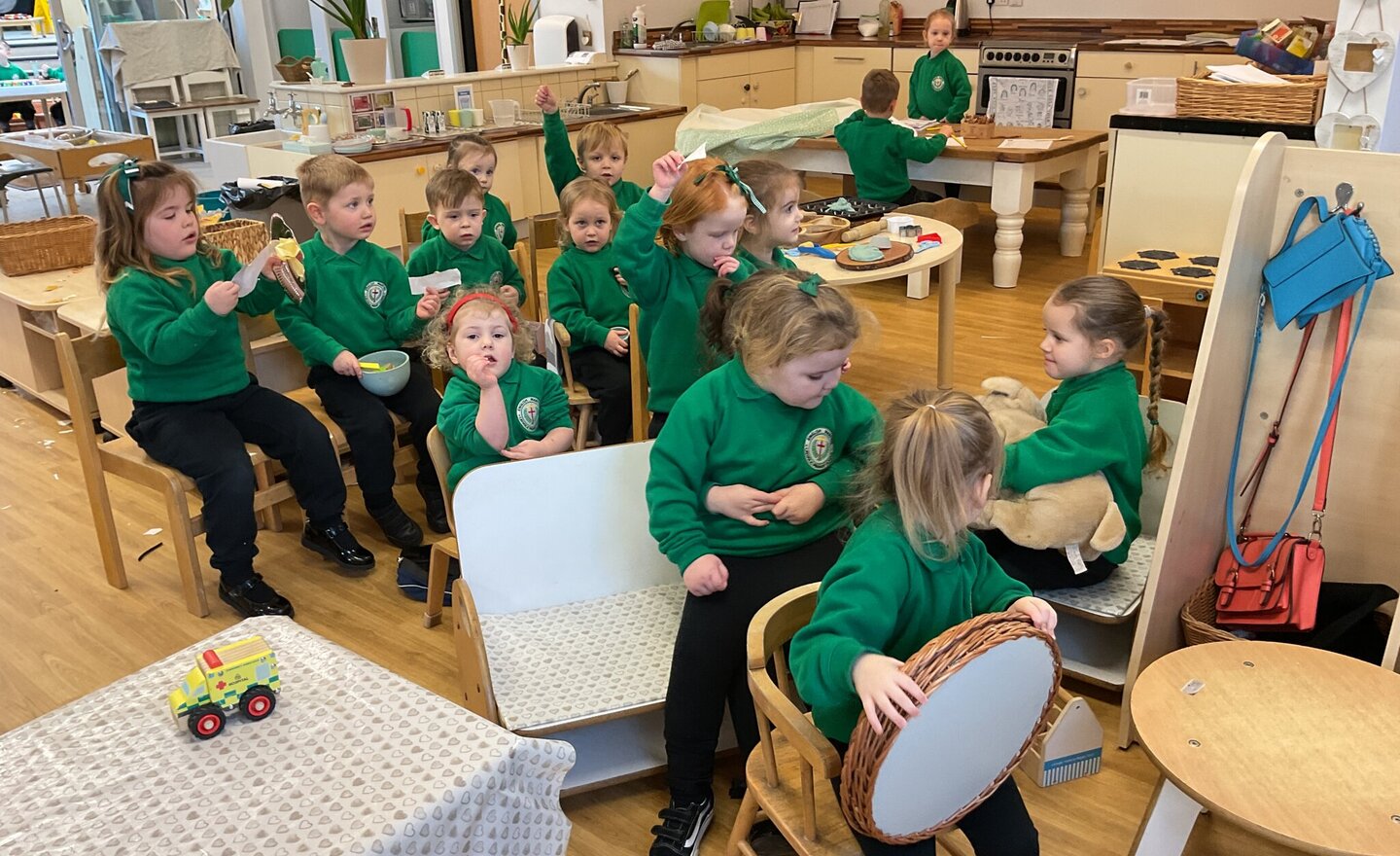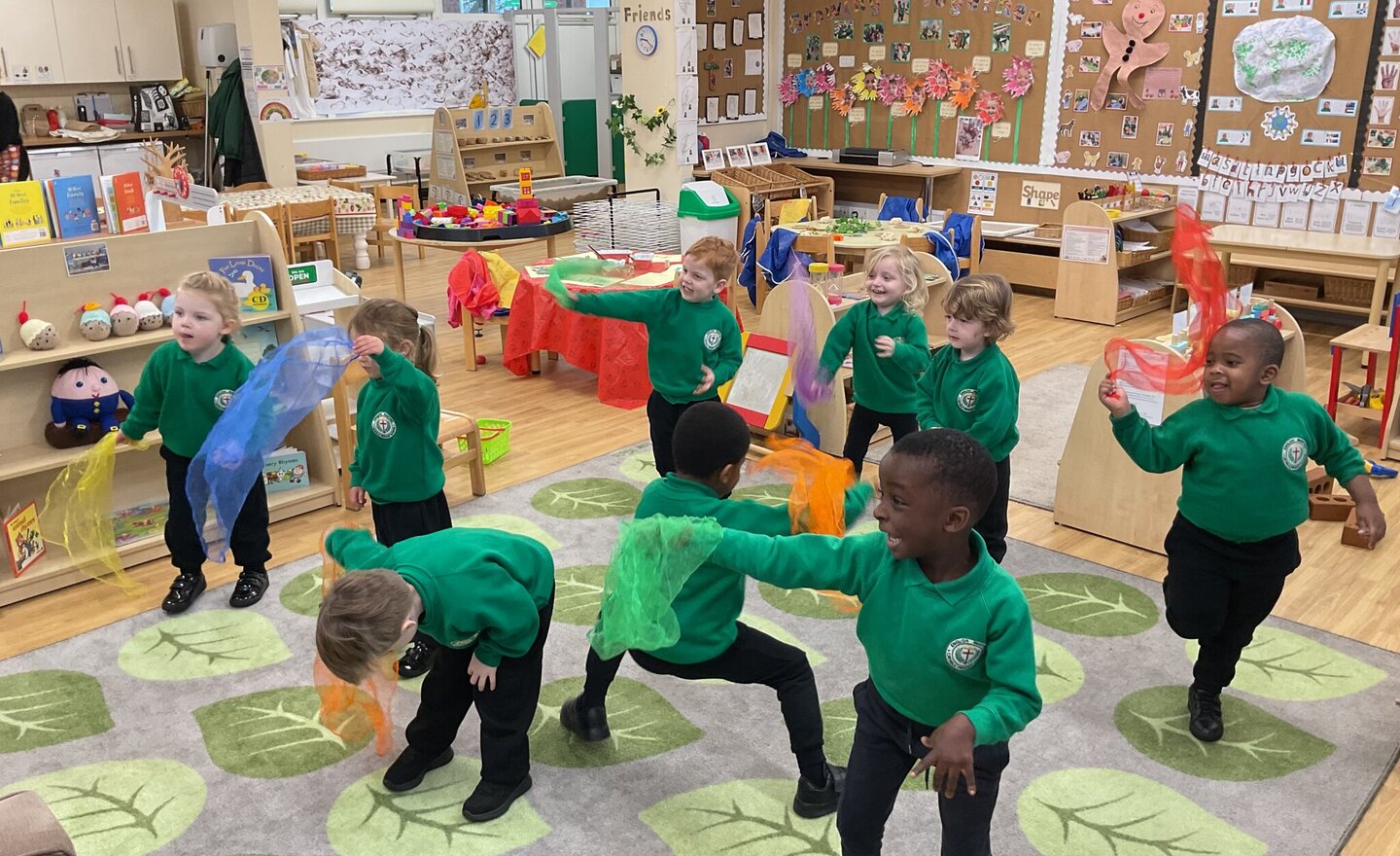“Music is a more potent instrument than any other for education because rhythm and harmony find their way into the inward places of the soul.”
- Plato
Our Goal
At English Martyrs, we believe that music is a powerful tool for education. Our goal is to help children feel musical and develop a lifelong love for music. Here's what you need to know about our music curriculum:
Musical Confidence: We want every child to feel that they are musical.
Skills Development: Children will learn to perform, compose, and listen to music confidently.
Diverse Exposure: Our curriculum includes music from around the world and different generations, teaching respect and appreciation for all music traditions.
Transferable Skills: Through music, children will develop teamwork, leadership, creative thinking, problem-solving, decision-making, and presentation skills.
How we teach Music
Holistic Approach: Our curriculum integrates performing, listening, composing, music history, and musical dimensions.
Engaging Units: Each unit is designed to capture children’s imagination and encourage enthusiastic exploration of music.
Spiral Curriculum: Skills and knowledge are revisited and built upon over time.
Active Participation: Lessons include a range of activities such as singing, playing instruments, improvisation, and group tasks.
Differentiation: Lessons are tailored to ensure all pupils can access and be challenged by the learning material.
Extracurricular Opportunities: Children can join various music activities and visit the Royal Liverpool Philharmonic Orchestra.
Impact
Our music curriculum aims to ensure that children:
Become Confident Musicians: As performers, composers, and listeners.
Appreciate Diverse Music: Understanding the cultural, social, and historical context of music.
Understand Musical Notation: Learning how music can be written down.
Express Musical Enthusiasm: Identifying their musical preferences and demonstrating a love for music.
Meet Curriculum Goals: Achieving the key stage expectations in the national curriculum.
Related Blog Posts
Patterns in Nursery
This week we have been looking for patterns around us including patterns in stories and songs. The children used chalks to create different patterns including spots, swirls, lines and zigzags. We then created patterns using peg boards and numicon. Together we also used lummi sticks to repeat…
All Aboard the English Martyrs Bus Tour!
After reading Naughty Bus the children decided to create their own bus in their independent learning. More and more children were finding chairs to pull up so that they could have a place on the bus. The children began singing ‘The Wheels on the Bus’ song.
Music in Nursery B
Expressive Arts & Design, Physical Development
The children have been learning about pitch and tempo through listening to different sounds and types of music. They have used their bodies to identify the tempo - moving and dancing quickly and slowly. Today they waved their scarves high and low…
.jpg)
.jpg)
.jpg)
.jpg)
.jpg)
.jpg)
.jpg)


